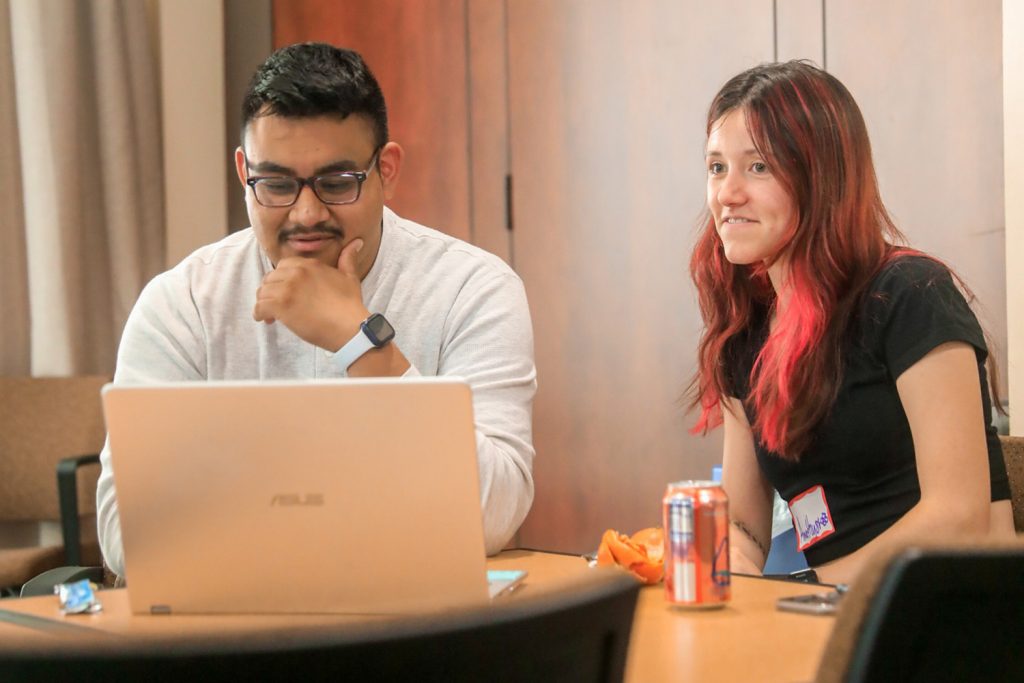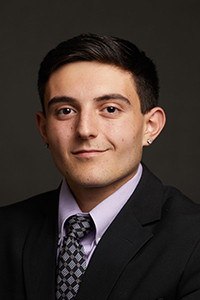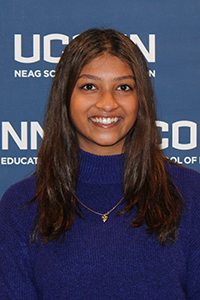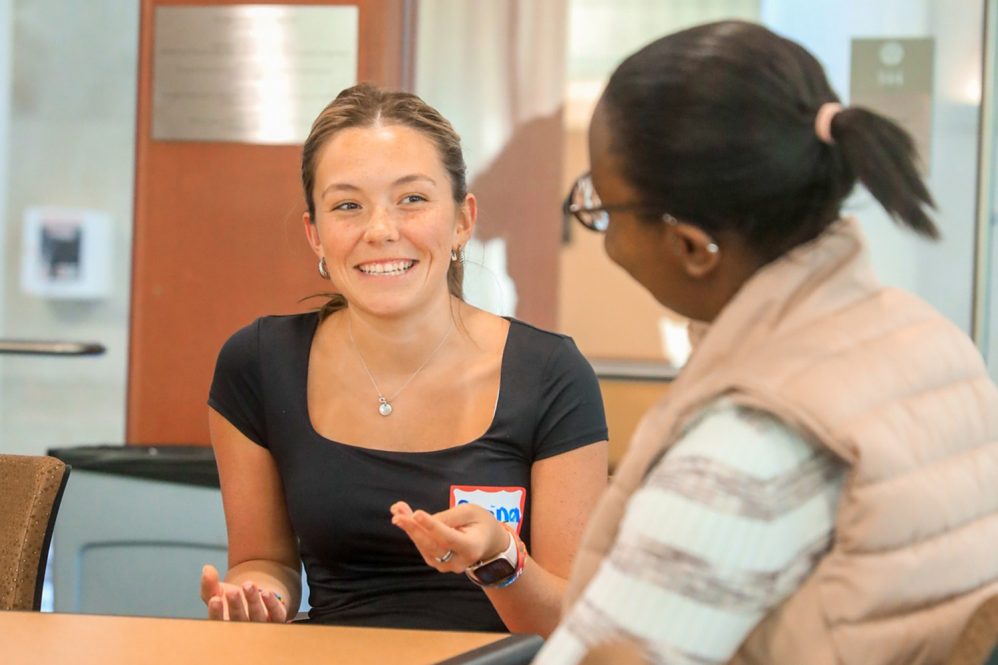Starting college is an undeniably exciting time, but it can also feel daunting and be a major adjustment for students. An even bigger adjustment is changing universities or campuses, or entering a professional program, in your junior year.
To help students with this transition, the Neag School of Education created a mentoring program for those enrolled in its Integrated Bachelor’s/Master’s (IB/M) teacher education program. The mentoring initiative was piloted in the 2022-2023 academic year with transfer and campus-change students and has expanded this year – thanks to support from the Neag School’s Dean’s Office – to include more students and help them achieve academic success.
The goals of the mentoring program are to help the juniors develop a sense of belonging at the Neag School; give the older students an opportunity to gain mentoring experience, which is an invaluable skill for when they become classroom teachers; and, ultimately, retain more students in the IB/M program so more of them can become educators who are desperately needed in schools across the country.
My mentorship allowed me to feel more comfortable at UConn and as if I had a guide along the way. — Louis Dortenzio Jr. ’24 (ED), ’25 MA
“It’s a mind shift for students to make the transition to a professional program, such as teacher education,” says Ann Traynor, the Neag School’s assistant dean and certification officer.
Traynor says she and the Neag School’s academic advisors noticed that many students had trouble transitioning into the IB/M program, especially during the COVID-19 pandemic. That, combined with the Life Transformative Education retreat Traynor attended on campus in June 2022, inspired them to create the mentoring program to support and retain students.
The team began by emailing incoming master’s students who were entering their fifth year in the IB/M program in Fall 2022, to see how many would be interested in mentoring juniors in the program. Then they contacted the incoming juniors who were transfer or campus-change students. In total, they heard back from eight mentors and 22 mentees.
Each mentor was connected with two or three mentees, based on major – a math education mentor with math education mentees, for example. Sometimes the groupings would broaden to include similar majors, such as a science education major with math education majors since they are all STEM subjects.

By the end of the 2022-2023 academic year, 20 of the 22 juniors who participated in mentoring were still enrolled in the IB/M program.
The mentoring program begins with a kickoff event each September, when the Neag School’s academic advisors provide food, lead icebreakers among the mentor and mentee groupings, and allow the students to get to know each other. This year’s event was held on Sept. 20 and organized by Anna Roberts and Dominique Battle-Lawson. Mentors and mentees are then required to meet three more times throughout the academic year, though the meetings can be informal and take any format they choose – as a group, one-on-one, over dinner, or for coffee.
To incentivize continued participation in the program and compensate students for their time and effort, the master’s students earned $250 scholarships each semester for being a mentor, while the mentees earned $175 scholarships.

Louis Dortenzio Jr. ’24 (ED), ’25 MA signed up to be mentored because he says he was looking for someone to talk to about his questions related to the IB/M program and that he thought a mentor would have more insight into the experiences he would have in his junior year.
“The mentorship was really nice,” Dortenzio says. “It helped knowing that my mentor struggled in some areas, too, and that I was doing just fine. Being able to realize that something is just hard, and it’s not just you who is having a tough time with it, is a difficult thing sometimes.”
Serena Anthonypillai ’22 (ED), ’23 MA says it was her own hardships that prompted her to want to become a mentor. She says when she first arrived at UConn as a first-year student, she struggled to make Storrs feel like home. She was unsure of which major she wanted to declare and felt unmotivated to find clubs that matched her interests. She says a co-worker encouraged her to find her way.

“I understand what it’s like to feel isolated, scared, and alone,” Anthonypillai says. “I decided to sign up to be a mentor because I wanted to be a person like my co-worker was for me and provide assistance and advice for students who had similar struggles to my own.”
Throughout the year, Anthonypillai says she developed her active listening and communication skills, which directly translates to her job as a teacher at Westwood High School in Massachusetts, because she says teachers also mentor their students.
“I am so grateful for every single experience I had because it pushed me outside of my comfort zone and into a new direction of learning,” she says.
For this academic year, Traynor and the academic advisors expect 9 mentors and 18 mentees to participate in the program.
“I would tell the new mentees to not be afraid to ask questions and get to know your mentor,” Dortenzio says. “My mentorship allowed me to feel more comfortable at UConn and as if I had a guide along the way.”
To learn more about the UConn Neag School of Education, visit education.uconn.edu and follow the Neag School on Instagram, Facebook, X, and LinkedIn.



